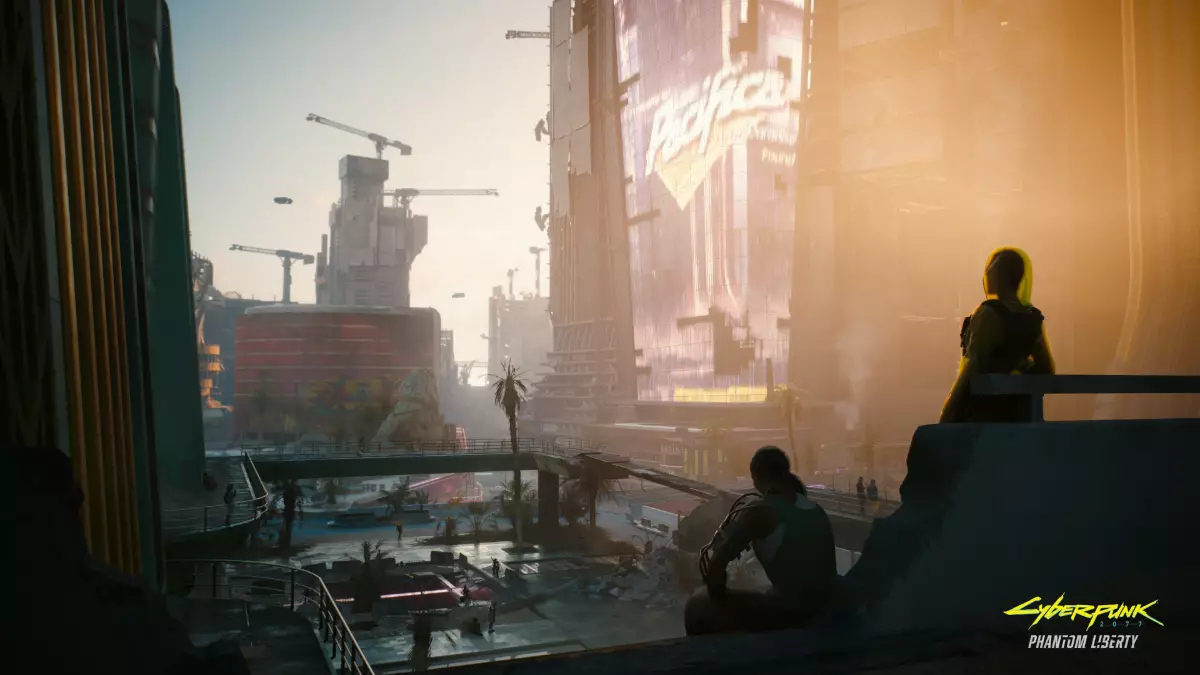The anticipation swirling around Project Orion, the sequel to the infamous Cyberpunk 2077, embodies the dual-edged nature of the gaming world today. CD Projekt Red, a studio that once basked in the glow of player affection, is now in a precarious position. The original game’s launch was riddled with controversy and technical issues, yet here we are, looking ahead with cautious optimism. The involvement of Mike Pondsmith, the visionary behind the Cyberpunk tabletop universe, adds an air of credibility to Project Orion. However, one cannot help but question the motivations behind the studio’s guarded approach and whether they are truly learning from their missteps.
Pondsmith’s insights, as he shares peeks into the sequel, indicate a bold leap into a broader universe. The introduction of a second city, described as “Chicago gone wrong,” hints at expanding narrative possibilities. Yet, is this ambition rooted in a genuine commitment to innovation or merely a strategic attempt to reignite interest in a damaged franchise? The understated charm of Night City was its layered storytelling and rich atmosphere, crafted meticulously by the developers. The prospect of branching out into a new urban landscape brings with it the risk of losing that nuanced depth.
The Dual Cities Dilemma
Two cities may promise a grander scope, but the question looms: will this venture dilute the high fidelity of details that made Night City so compelling? Night City, a sprawling metropolis teeming with lives and stories, was more than just a backdrop; it was a character in its own right. While Pondsmith teases that this second city will not mimic the aesthetics of Blade Runner, one must wonder if its portrayal will resonate with the same emotional intensity. Striking this balance presents a daunting challenge, especially given the deterioration of trust from the player base following Cyberpunk 2077’s troubled launch.
Moreover, Pondsmith’s comment about “the most realistic and reactive crowd system” evokes a promise that feels tantalizing yet heavy. Games have increasingly emphasized lifelike environments and dynamic interactions, but how many have truly succeeded? The move towards using Unreal Engine 5 is undoubtedly ambitious, allowing for stunning visuals, yet the real test lies in how well the systems interact with each other and the player. The implications of crowd dynamics stretch beyond mere aesthetics; they are a lens through which the game’s society can be critiqued and enriched.
Reclaiming Trust in a Fractured Industry
Now more than ever, CD Projekt Red must tread lightly. The scenery of the gaming industry is marred by unfinished products, overhyped releases, and broken promises. The resurgence of Project Orion is more than just a development of a new game; it’s a pivotal moment for the studio. Though they project confidence, an undercurrent of skepticism remains palpable from the gaming community. With The Witcher 4 and multiple adaptations of its flagship series on the horizon, this is a make-or-break period.
Amidst these revelations lies a fundamental truth: the player community has evolved. Gamers expect transparency, and they hunger for not just an engaging narrative but a cohesive experience unmarred by technical snafus. CD Projekt’s initial embrace of the Cyberpunk dystopia brought with it ideological themes of capitalism’s excess, the erosion of humanity in the age of technology, and, the consequences of moral ambiguity. The sequel must dig deeper, offering a contemporary critique matched with gameplay innovation to truly shine.
Project Orion stands at a fascinating yet precarious crossroads. It holds immense potential, but that potential is intertwined with the lessons learned from past failures. Transforming anticipation into thoughtful engagement requires a discerning approach. As development continues amidst whispers of hype and scrutiny, the gaming world watches closely, hoping for a redemption narrative that goes beyond mere spectacle. The fate of this sequel may well define not just a franchise but the integrity of a studio attempting to climb back from the abyss.


Leave a Reply